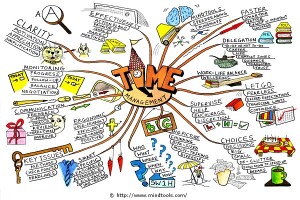 Hi everyone. This is not going to be a high-quality post, because I spent many, many hours this weekend watching House of Cards on Netflix. Darn you, Frank Underwood, you creepy, effective bastard and your ruthlessly efficient wife! Now it is 12:30am and I am only beginning to work on this post, which is really more like a cry for help. I was going to skip writing this week, but I want to set a good example for my son, who is now 10-months-old. “Son,” I told him today while he was snuggled up on my lap, “always be consistent, sometimes even at the cost of quali—what…what is that in your mouth?! Is that a paperclip?! Ack! Where did you get this paperclip?! Spit that out! Spit it out right now! Stop squirming! Open your mouth! No! You can’t eat this paperclip! Stop biting Daddy! OW!”
Hi everyone. This is not going to be a high-quality post, because I spent many, many hours this weekend watching House of Cards on Netflix. Darn you, Frank Underwood, you creepy, effective bastard and your ruthlessly efficient wife! Now it is 12:30am and I am only beginning to work on this post, which is really more like a cry for help. I was going to skip writing this week, but I want to set a good example for my son, who is now 10-months-old. “Son,” I told him today while he was snuggled up on my lap, “always be consistent, sometimes even at the cost of quali—what…what is that in your mouth?! Is that a paperclip?! Ack! Where did you get this paperclip?! Spit that out! Spit it out right now! Stop squirming! Open your mouth! No! You can’t eat this paperclip! Stop biting Daddy! OW!”
So let’s talk about time management. We are all incredibly busy people. Helping make the world better takes a lot of time. I am always amazed at the people who can manage their time well. They tend to be morning people, and they wake up at 5am to do some yoga and drink a green smoothie made from wheatgrass and hemp oil or something before heading to the office by 7am and they’re all like “I feel so good because I exercised this morning, and wheatgrass is soooo good for you.” If you are one of these people, I admire and hate you in equal measures.
I am not one of these people. Before the baby came along, I woke up at 9:30am and got to the office at 10am. Then I’d work until whenever, coming home anywhere from 6pm to 10pm. That seems like a solid 8 to 12 hours per day, except those hours are not efficient. Maybe 5 hours was spent doing actual work. The rest would be filled with reading the news, arguing with various people about the Walking Dead or Game of Thrones, and looking at pictures of cute baby animals. Then, at home, feeling awful that I didn’t get much accomplished, I would put in several hours at night—unless TBS has a marathon of The Golden Girls, because, come on, those girls, Dorothy, Rose, Blanche, and Sophia are hilarious!
Now that the baby is here, time is even scarcer. My emails are going crazy, I have way too many meetings, and I haven’t been sleeping enough. I must get a handle on things. A while ago I wrote about the four different work styles. Some of us are Dragons, some are Unicorns, others are Phoenix, and others are Lion-Turtles. Reading that post again, I realized that they each handle time management differently:
Dragons are probably the best time managers, since they are action-oriented and are hard set on deadlines. They don’t like excuses. If you say you’re going to do something, you better do it, or a Dragon will set your hair on fire. Quality may sometimes be debatable, but stuff will get done.
Phoenixes will commit to just about anything because they get bored easily and need to work on a billion things all at once. But then they get distracted by shiny new projects and drop balls left and right. They are poor time managers but because they’re usually charismatic, the rest of us tend to let it slide.
Lion-Turtles take forever to think about things because they need everything to be absolutely perfect. They are systematic and organized with their time. They, like the Dragons, are deadline-driven and high-quality, but they need plenty of lead time in order to analyze and think about everything.
Unicorns are considerate and want to be helpful, so they’ll often spend time on other people’s projects even at the cost of doing their own work. They put people before time, and they overcommit. So if a coworker is feeling down, they’ll drop their own work to cheer that person up. In other words, they also suck at time management.
Crap, I think I am a Phoenix-Unicorn hybrid, the two worst time-managers among the four styles. Dragons are awesome this area, followed by Lion-Turtles (I think Frank and Claire in House of Cards are these two styles respectively). I had planned to write a post called “10 Time Management Tips for Busy Nonprofit Peeps,” but I don’t think I am qualified to dish advice on something I pretty much suck at.
So, I need your help. What strategies do you use to manage your time? There are tons of time-management tips out there. They all make sense. “Tip 1: Make a To-Do list. Tip 2: Prioritize your list. Tip 3: Do the stuff on your list.” But it’s not that simple! To-do lists work for some people. Plus, we nonprofits are all understaffed, so we default to the Competency Paradox, which states that the more competent you are, the more work you get. Things are getting out of control! It’s 1:45am and the baby wakes up in 5 hours!
Let me know what works for you, and what style you are. You can type it in the comment section. Or if you’re free this week, I’d be glad to get coffee or a drink to talk about it for several hours.





